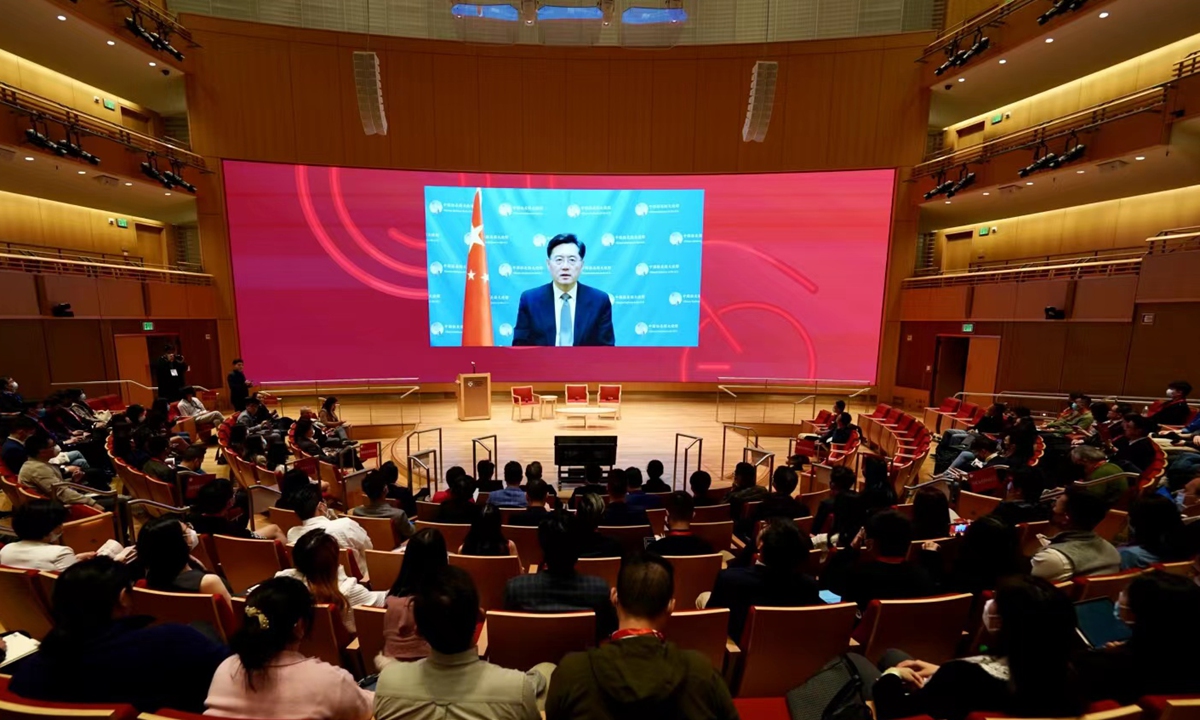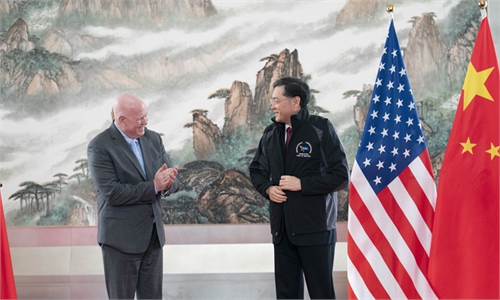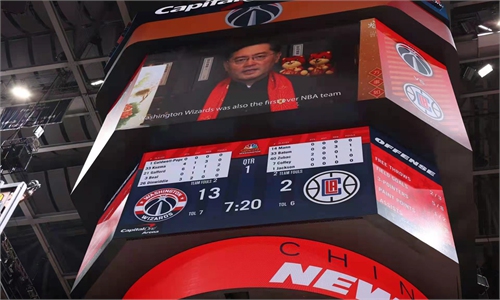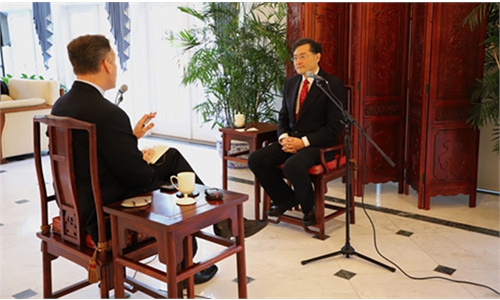China, US should break current frigid bilateral relations through dialogue: Chinese Ambassador

Photo: Courtesy of Chinese Embassy to the US
Chinese Ambassador to the US Qin Gang said in a video address at the opening ceremony of the 25th Harvard College China Forum on Saturday that China and the US should break the current cold bilateral relations through dialogue.This year marks the 25th anniversary of the Harvard College China Forum, a student-run conference that brings together some of the world's most prominent thought leaders to discuss the challenges, trends, and issues affecting China. The theme of this year's forum is "Extraordinary Times" and nearly 600 students, teachers and experts from Harvard University, as well as overseas Chinese students in the US and business moguls from China and the US attended the forum, according to the Xinhua News Agency.
In his video speech, Qin pointed out that currently Harvard has more than 1,000 Chinese students, which constitute its largest international student body and is a vivid epitome of social and cultural exchanges between China and the US. However, China-US relations now face a grim and complex future. "Dark clouds of misunderstanding and miscalculation are gathering and the solid ice of the so-called new cold war is solidifying," Qin said.
Recently, China and the US have confronted each other on issues such as the Taiwan question and the Russia-Ukraine conflict. On April 5, the Biden administration approved its second arms sale to the Taiwan authority in two months, an estimated $95 million package including equipment and services to maintain the missile defense system the US had exported to the island. On April 9, US Senator Josh Hawley introduced the Taiwan Weapons Exports Act, which would speed up the delivery of critical weapons to Taiwan, US media reported.
Meanwhile, US Treasury Secretary Janet Yellen has called on China to pressure Russia to end its military operation in Ukraine at the Atlantic Council in Washington on April 13.
Addressing the issues, Qin said that the Ukraine crisis has prompted people to rethink the relations between great powers and the international order. Qin stressed that the two sides should conduct more extensive, in-depth, candid and open exchanges and dialogues, and use the power of truth to break misunderstandings and prejudices, the stubborn political correctness, and the current icy relationship that does not serve the interests of the two countries and runs counter to the public opinions of the two sides.
Qin expressed hope that the forum would bring about another phase of brainstorming and help blow away the dark clouds of misunderstanding and misjudgment and that every participant to the forum will become an icebreaker.
"I think what Ambassador Qin meant is, first of all, China and the US should promote their relations through dialogue and cooperation rather than confrontation," Xin Qiang, deputy director of the Center for American Studies at Fudan University, told the Global Times on Sunday. "Second, it is inevitable for two big countries to have differences. But both sides should try to cooperate through communication, rather than imposing sanctions or unilateral penalties or challenging each other's core interests to coerce the other side into submission.
Experts believe Qin's words reflect that on the Russia-Ukraine conflict, the US should not force China to be in complete agreement with the US. But what is more important is whether China and the US can work together through cooperation and consultation to do something that is meaningful for the international community and global governance, to defuse conflicts and to maintain peace and stability while respecting each other's interests and concerns.
Huang Ping, Chinese Consul General in New York, also attended the forum on Saturday. During his speech, Huang said that "although there is competition between China and the US, the scope of cooperation is far greater than that of competition, and in many aspects, it is cooperation that makes China and the US achieve a leap in their respective international competitiveness."
Huang noted that the most important event in international relations over the past 50 years was the reopening and development of the China-US relations, which has benefited the two countries and the whole world. He added that the most important event in international relations in the coming 50 years will be for China and the US to find the right way to get along.
Using a proverb, Huang said that China and US should not "learn from spiders who make their own webs, but learn from bees who make honey together."



